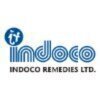Officer QC & QA
20+ Officer QC & QA Interview Questions and Answers
Asked in Ronam HealthCare

Q. What are the critical areas to observe in a Quality Control (QC) laboratory?
Key areas in a QC lab include equipment calibration, sample integrity, documentation, and compliance with regulations.
Equipment Calibration: Regularly calibrate instruments to ensure accurate measurements, e.g., pH meters, balances.
Sample Integrity: Maintain proper storage conditions for samples to prevent degradation, such as temperature control.
Documentation: Ensure all procedures and results are documented accurately for traceability and compliance.
Regulatory Compliance: A...read more

Asked in Finecure Pharmaceuticals

Q. 1 Melting point, boiling point 2 ph range 3 Molecular weight
The interviewer asked about melting point, boiling point, pH range, and molecular weight.
Melting point is the temperature at which a solid turns into a liquid.
Boiling point is the temperature at which a liquid turns into a gas.
pH range is the measure of acidity or basicity of a substance.
Molecular weight is the sum of the atomic weights of all atoms in a molecule.
These parameters are important in quality control and quality assurance of products.
For example, the melting point...read more

Asked in Galaxy Surfactants

Q. Buffer used for ph meter calibration
The buffer used for pH meter calibration is typically a solution with a known pH value.
Buffers are used to calibrate pH meters to ensure accurate measurements.
Common buffers used for pH meter calibration include pH 4.01, pH 7.00, and pH 10.01.
Buffer solutions are prepared using specific chemicals and distilled water.
The pH meter is calibrated by immersing the electrode in the buffer solution and adjusting the meter to match the known pH value.
Regular calibration of pH meters ...read more

Asked in Laurus Labs

Q. What does CAPA mean?
CAPA stands for Corrective and Preventive Action.
CAPA is a systematic approach used to identify, investigate, and resolve quality issues.
It involves analyzing the root cause of a problem and implementing corrective actions to prevent its recurrence.
Corrective actions address existing issues, while preventive actions aim to prevent potential problems.
CAPA is an essential component of quality control and assurance processes.
Example: If a product fails to meet quality standards,...read more
Asked in Ronam HealthCare

Q. What is your understanding of practical knowledge?
Practical knowledge involves hands-on experience and skills applied in real-world situations, enhancing theoretical understanding.
Practical knowledge is gained through direct experience, such as conducting experiments in a lab.
It includes skills like operating machinery, where theoretical knowledge is applied in real-time.
In quality control, practical knowledge helps in identifying defects through inspection techniques.
For example, a QC officer uses practical knowledge to ass...read more

Asked in Lupin

Q. Is heat fixing necessary when preparing a microbial slide?
Heat fixing is essential for preparing microbial slides to adhere cells and prevent distortion during staining.
Heat fixing kills the microorganisms, making them safe to handle.
It helps to adhere the cells to the slide, preventing them from washing off during staining.
Heat fixing preserves the morphology of the cells, allowing for accurate observation.
For example, in Gram staining, heat fixing is crucial to maintain the shape and arrangement of bacteria.
Officer QC & QA Jobs



Asked in Magbro Healthcare

Q. What is your understanding of pharmacy?
Pharmacy involves the preparation, dispensing, and management of medications to ensure safe and effective use by patients.
Pharmacy is the science and practice of preparing and dispensing medications.
Pharmacists play a crucial role in ensuring the safe and effective use of medications by patients.
Pharmacy also involves medication management, patient counseling, and drug information services.
Pharmacy technicians assist pharmacists in dispensing medications and managing inventor...read more

Asked in Galaxy Surfactants

Q. What does method validation mean?
Method validation is the process of demonstrating that an analytical method is suitable for its intended use.
Method validation ensures that the analytical method is accurate, precise, specific, and reliable.
It involves testing the method's performance characteristics, such as linearity, range, accuracy, precision, and robustness.
Validation is necessary to ensure that the results obtained from the method are reliable and can be used for decision-making.
Examples of methods that...read more
Share interview questions and help millions of jobseekers 🌟


Asked in Vadilal Industries

Q. What tests are performed on milk?
Tests for milk include fat content, protein content, lactose content, bacterial count, and presence of antibiotics.
Fat content test determines the amount of fat in the milk.
Protein content test measures the protein levels in the milk.
Lactose content test checks the presence of lactose, a type of sugar in milk.
Bacterial count test determines the level of bacteria in the milk, which can indicate freshness.
Presence of antibiotics test checks for any antibiotics present in the mi...read more
Asked in Sassoon Hospital

Q. What is clinical research what regulatory affairs,
Clinical research is the study of drugs, devices, or interventions in humans to determine their safety and efficacy.
Clinical research involves conducting trials on humans to test the safety and efficacy of drugs, devices, or interventions.
It is conducted in phases, starting with small studies to determine safety and dosage, and progressing to larger studies to determine efficacy.
Regulatory affairs involves ensuring that clinical trials are conducted in compliance with regulat...read more

Asked in Privi Speciality Chemicals

Q. How do you create a new method in GC?
Creating a new method in GC involves defining the method, implementing it, and integrating it into the existing framework.
Define the method signature, including parameters and return type.
Implement the method logic, ensuring it adheres to GC standards.
Test the method thoroughly to ensure it functions correctly.
Integrate the method into the existing GC framework, updating any necessary documentation.

Asked in Privi Speciality Chemicals

Q. Gc principle, split and split less difference.
GC separates compounds based on volatility; split vs. splitless affects sensitivity and resolution.
Gas Chromatography (GC) separates volatile compounds in a sample.
Split injection allows a portion of the sample to enter the column, reducing sensitivity but increasing speed.
Splitless injection sends the entire sample into the column, enhancing sensitivity for trace analysis.
Example: Split is used for high-concentration samples; splitless is ideal for low-concentration or trace...read more

Asked in Unichem Laboratories

Q. What is Quality Assurance?
Quality Assurance is a process that ensures products or services meet specified requirements and standards.
Quality Assurance involves creating and implementing quality control processes.
It focuses on preventing defects and errors rather than detecting them after production.
QA includes activities like planning, designing, and executing tests to ensure product quality.
It also involves monitoring and analyzing data to identify areas for improvement.
Examples of QA techniques incl...read more
Asked in Althea Pharma

Q. I am a very hard worker.

Asked in Indoco Remedies

Q. Acceptance Criteria of disso, Cu etc
Acceptance criteria for disintegration and dissolution testing, as well as copper content in pharmaceutical products.
Disintegration testing should meet specified time limits for complete disintegration of tablets or capsules.
Dissolution testing should meet specified criteria for release of active ingredient(s) from the dosage form.
Copper content should be within acceptable limits to ensure product quality and safety.
Acceptance criteria may vary depending on the specific produ...read more
Asked in Relicare Tech Services

Q. What is regulatory affairs?
Regulatory affairs involves ensuring compliance with government regulations and guidelines in various industries.
Regulatory affairs professionals are responsible for obtaining and maintaining regulatory approval for products and services.
They work closely with government agencies to ensure compliance with regulations and guidelines.
In the medical field, regulatory affairs involves obtaining approval for drugs, medical devices, and clinical trials.
In other industries, regulato...read more

Asked in Privi Speciality Chemicals

Q. Fingerprint region in IR spectroscopy.
The fingerprint region in IR spectroscopy is crucial for identifying molecular structures through unique absorption patterns.
The fingerprint region typically ranges from 400 to 1500 cm⁻¹.
It contains complex absorption bands that are unique to specific molecules.
Common functional groups can be identified outside this region, but the fingerprint region is more specific.
For example, the presence of a carbonyl group (C=O) can be identified in the fingerprint region.
Fingerprinting...read more

Asked in Ashish Life Science

Q. How do you handle Out-Of-Specification (OOS) results?
Handling Out of Specification (OOS) results involves investigation, documentation, and corrective actions to ensure quality compliance.
Initiate an investigation immediately upon OOS result detection.
Review the testing process, including sample handling and equipment calibration.
Conduct a root cause analysis to identify potential sources of error.
Document all findings and actions taken in a comprehensive report.
Implement corrective actions and preventive measures to avoid recu...read more

Asked in Hikal

Q. Responsibilities of QA person
The responsibilities of a QA person include ensuring the quality of products or services, identifying and reporting defects, and implementing quality control processes.
Developing and implementing quality assurance policies and procedures
Conducting tests and inspections to identify defects and ensure product or service quality
Documenting and reporting test results and defects
Collaborating with cross-functional teams to address quality issues
Implementing quality control process...read more

Asked in Ciron Drugs & Pharmaceuticals

Q. Calibration of dissolution
Calibration of dissolution is a process to ensure accuracy and reliability of dissolution testing equipment.
Calibration involves verifying the accuracy of the equipment by comparing it to a known standard.
Regular calibration is essential to maintain the quality and consistency of dissolution testing results.
Calibration parameters may include temperature, rotation speed, and media pH.
Examples of calibration standards include USP and EP guidelines for dissolution testing.
Calibr...read more

Asked in Ciron Drugs & Pharmaceuticals

Q. Calibration of Uv
Calibration of UV involves verifying the accuracy of the UV equipment by comparing its readings to a known standard.
Calibration ensures that the UV equipment is providing accurate and reliable measurements.
Calibration involves adjusting the UV equipment if necessary to bring it into alignment with the standard.
Regular calibration is important to maintain the quality and accuracy of UV measurements.
Examples of calibration standards for UV equipment include certified reference ...read more
Asked in Cyclone Pharmaceuticals

Q. What is QA?
Quality Assurance (QA) ensures products meet specified requirements and standards through systematic processes and evaluations.
QA focuses on preventing defects in products or services before they occur.
It involves systematic processes like audits, reviews, and testing.
Examples include software testing to ensure functionality and compliance.
QA is proactive, aiming to improve processes and enhance customer satisfaction.
In manufacturing, QA might involve inspections and quality ...read more

Asked in Crust n crumb

Q. What are the details of HACCP?
HACCP is a systematic approach to food safety that identifies and controls hazards in food production.
HACCP stands for Hazard Analysis Critical Control Point.
It involves seven principles: conducting a hazard analysis, determining critical control points, establishing critical limits, monitoring procedures, corrective actions, verification procedures, and record-keeping.
For example, in a meat processing plant, a critical control point could be cooking temperature to eliminate ...read more

Asked in Blue Cross Laboratories

Q. IPQA test in Tablets
IPQA in tablets ensures quality control during manufacturing, focusing on compliance and product integrity.
IPQA stands for In-Process Quality Assurance, crucial for monitoring production.
It involves real-time checks at various stages, such as granulation and compression.
Examples include verifying tablet weight, hardness, and disintegration time.
Documentation of findings is essential for regulatory compliance and traceability.
IPQA helps in identifying deviations early, prevent...read more
Interview Experiences of Popular Companies









Reviews
Interviews
Salaries
Users


















